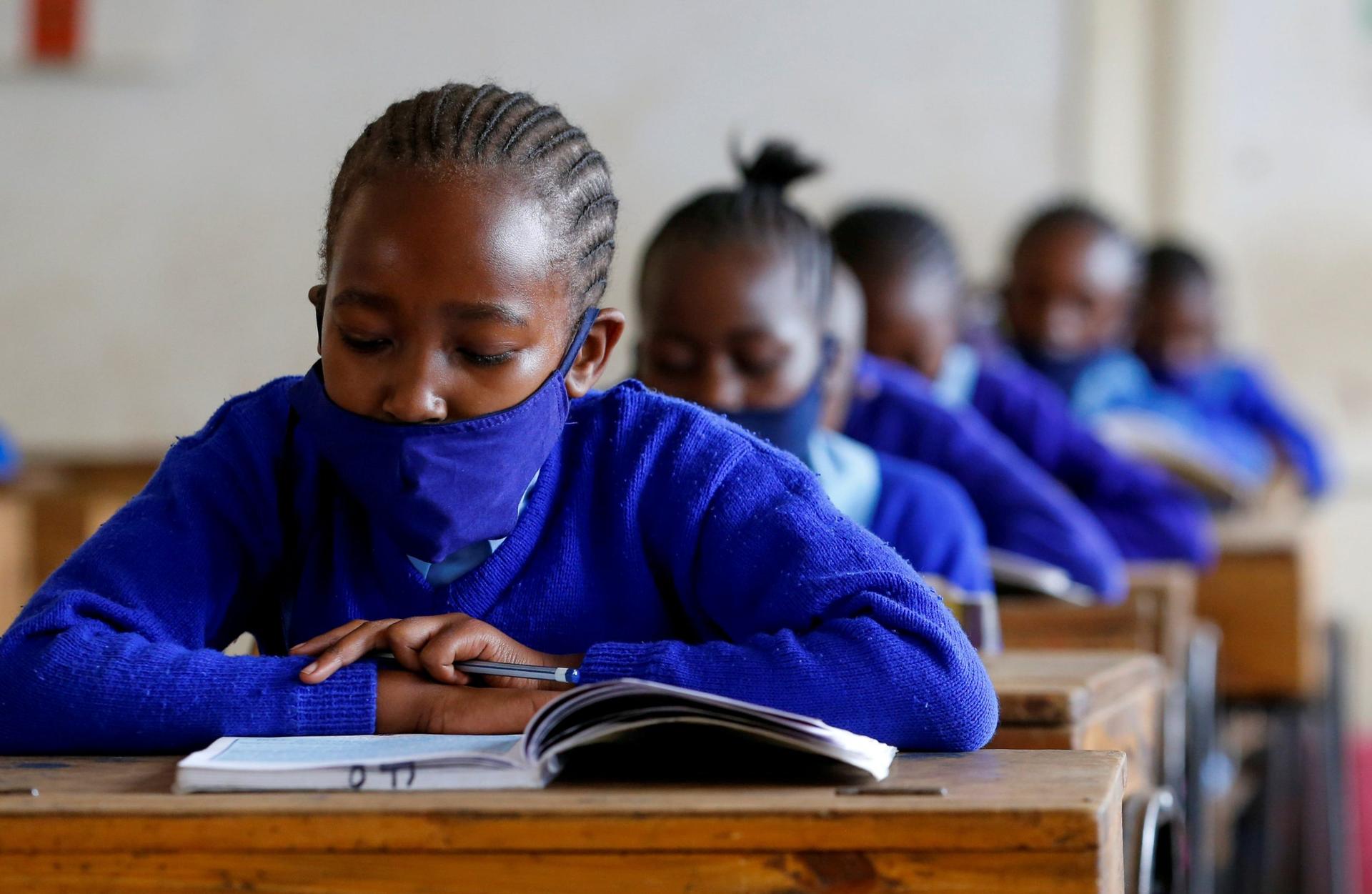NAIROBI, Kenya — Kenyan college students are frustrated that their studies have been interrupted because the country’s internet infrastructure is too inadequate to maintain an online learning environment during the coronavirus pandemic.
They have complained of disruptions in service and slow speeds that cause long delays in communication. They also said the high cost of connecting online has prohibited their full participation in college coursework.
“Many a times, you would need a technician next to you to ensure all is smooth-going,” said Reagan Kocholo, a Sudanese student studying journalism at Catholic-run Tangaza University College in Nairobi.
Online, or e-learning as it is known in Kenya, has become the primary educational alternative during government-mandated lockdowns because of the pandemic.
“On one front, it has been the question of technical disruptions due to poor internet connectivity as well as high purchase of bundles, necessary for the e-learning process,” Kocholo told Catholic News Service.
“Sometimes it would happen in either the beginning, middle or the end of lessons. It could either be from my side or the lecturer’s side,” he said.
Francis Muroki, one of Kocholo’s college instructors, estimated that about 40% of students have a difficult time accessing uninterrupted internet service.
Despite the difficulties, Kenya is said to be ahead of some African countries in terms of internet connectivity, according to a study by Sustainable East African Research in Community Health. Internet service is best in Mombasa on the Indian Ocean coast, where undersea cables enter the country, and Nairobi, the capital. Rural communities have difficulty accessing reliable internet service, however.
The SEARCH study found that Kenya has the third-best broadband speeds on the African continent. Despite that, not everyone can access the service and that poses problems for students and professionals in outlying areas.
Father Richard Rwiza, who teaches theology at Catholic University of Eastern Africa in Nairobi, said both he and his students have experienced disruptions in online communication because of poor connectivity. He said about half of his students have been affected.
He also cited cost as a prohibitive factor.
“The introduction of the e-learning in schools as a result of the COVID-19 pandemic was a good move, but it has come with a cost. Both the lecturers and students had to sacrifice a lot to allow the program to become workable,” he said.
Gibson Kariuki, a parent in rural Muranga, north of the capital, told CNS that his children only occasionally enjoy online learning offered by the government because of the poor digital infrastructure and the expense of service.
“The e-learning was a better offer by the government and various institutions in the field of the internet, but it equally came with a cost, that some of us poor and rural parents could hardly afford financially,” Kariuki said.
An information and technology expert in rural Kenya, who asked that his name not be used because of possible retribution, said some Kenyan families have decided not to invest in computers and internet service to advance their children’s education.
“While the government continues to ensure that the entire country is fully and effectively connected on the internet issue, parents have a duty to ensure that they have sacrificed enough in the e-learning field, through the purchase of effective gadgets to ensure the e-learning is effectively carried out,” he said in a telephone interview.
Linda Kioko, 22, is pursuing studies in Machakos, a rural town southeast of Nairobi. She said she has been unable to participate in online learning because of the cost. Instead, she is looking forward to the resumption of in-person classes.
The Kenyan government plans to lift restrictions on in-person learning in January. That decision especially will benefit students who cannot access the internet. Officials have said, however, that lockdowns will resume if students and faculty fail to follow guidelines to prevent the spread of the coronavirus.
Maryknoll Father Joseph Healey, who lectures at Tangaza University College and Hekima University College, a theology school, called on the government to do a better job of helping students.
“The government must work harder on the internet issue, while parents in the country must sacrifice to ensure their children benefit fully from the e-learning,” he told CNS. “My advice to both the Kenyan government and the Kenyan parents is to effectively go digital or die.”














